#greece history
Text
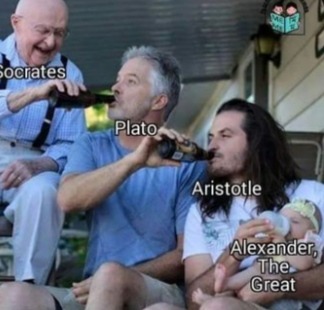
Such a loving family...
#greek philosophy#philosophy#socrates#Plato#Aristole#alexander the great#history#alexander of macedon#Macedonian empire#Greece history#greece#family#loving family#student
13 notes
·
View notes
Text
Waking in Crete
Crete, Greece: the Island of Heroes, the birthplace of Zeus, the home of the Minotaur, abundant in olives and rugged with mountains.
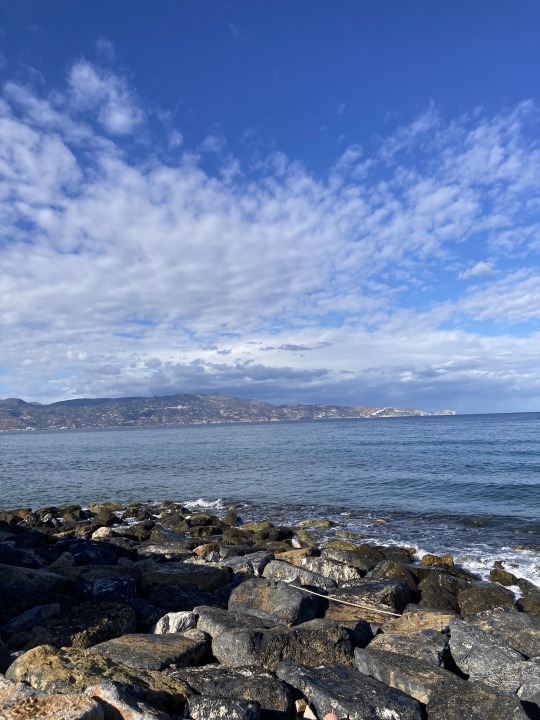
View On WordPress
#Adventure Seekers#Couple Travels#Crete#Greece#Greece History#Greek#Greek Hospitality#Heraklion#Heraklion Crete#Heraklion Greece#International travel#Life in Crete#Traveling#Traveling Abroad#Traveling as a couple#Visiting Crete#Visiting Greece
0 notes
Text
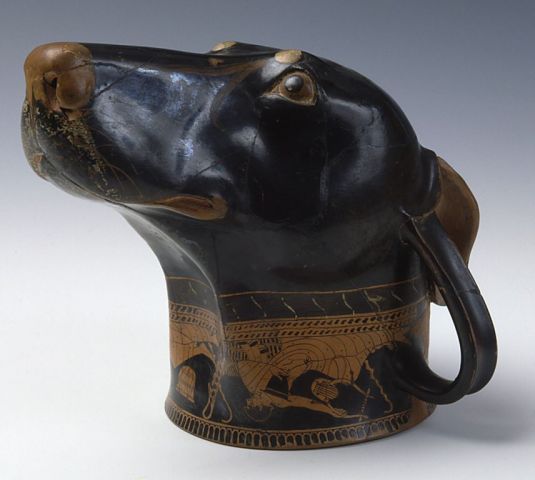
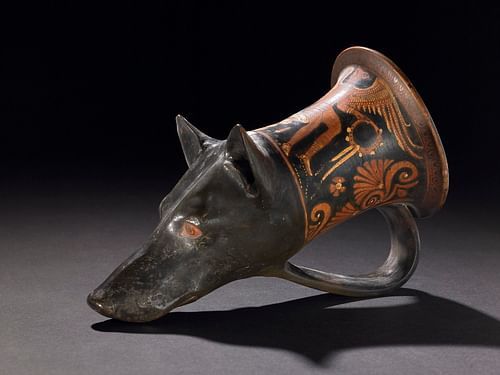
(Approx.) 4th Century BCE Good Boys
#ancient greece#ancient history#mug#mugs#ceramics#art#dogs#dogs of tumblr#dogblr#lol#we never change#do we#pottery#ceramic art#ceramic mug#cute animals#animals
19K notes
·
View notes
Text
In the native dialect of Lesbos, Sappho's name is spelled "Psappho". I sometimes picture what it would have been like if that had been the spelling modern English had gone with. Imagine being psapphic.
11K notes
·
View notes
Text
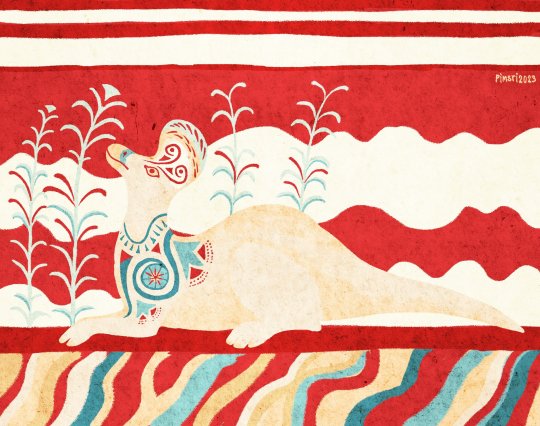

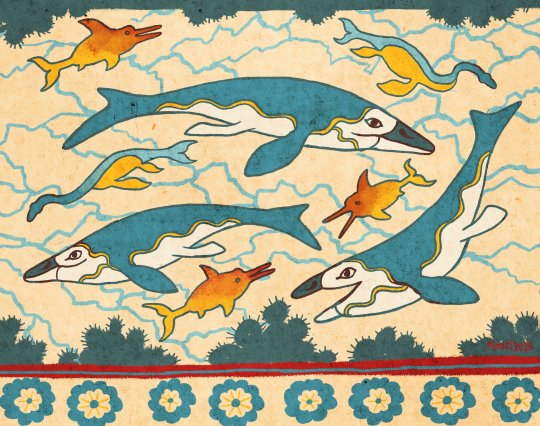

Paleo art inspired by Minoan frescoes
#pimsriart#pimsriart2023#paleoart#paleo art#paleontology#dinosaur#marine reptile#animal#minoan#minoan frescoes#frescoes#art history#ancient greece#triceratops#lambeosaurus#microraptor#mosasaurid
14K notes
·
View notes
Text


Paola Revenioti: The Greek transgender activist on blowing up sexual taboos in the name of art
During the 80s, transgender Greek artist and prostitute Paola Revenioti published the trans-anarchist fanzine Kraximo. Funded by her own prostitution, the zine pioneered the fight for gay and trans rights, combining interviews with Greek poets and intellectuals alongside Athens street hustlers and her own photography, since compared to the work of Larry Clark and Walter Pfeiffer. Today she continues to work as an artist and activist, making Athens-based documentaries with her "Paola Projects."
8K notes
·
View notes
Text

Death of Sappho, Miquel Carbonell Selva, 1881
#art#art history#Miquel Carbonell Selva#historical painting#ancient history#Ancient Greece#Sappho#Death of Sappho#Spanish art#Catalan art#19th century art#oil on canvas#death tw
6K notes
·
View notes
Text
i love when academics are like this
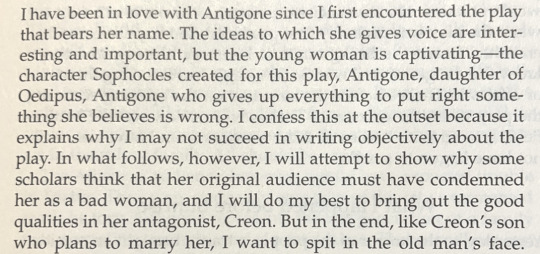
from the translator's introduction in my copy of antigone... she's his blorbo.... <3
6K notes
·
View notes
Text


Rhyton in the shape of a dog's head, Greece, circa 480 BC
from The State Hermitage Museum, St. Petersburg
2K notes
·
View notes
Text
Just on a whim, because I know that Alcibiades is one of the weirdest and funniest characters in ancient Greek history, I asked ChatGPT "What's the weirdest thing Alcibiades ever did?"
ChatGPT came back with the details of something Alcibiades (henceforth referred to as 'Alci' so I don't have to keep typing it out) was accused of, but acquitted of.
When I pointed out that he had been acquitted and may not have actually done this thing, Chat GPT apologised and said, "yes, he was acquitted", and then went on to tell me that, nonetheless, the event was significant because it made Alci flee the city.
Alci did not flee the city, he was sent away on a military expedition, which was exactly what he'd wanted and asked for. When I pointed that out, ChatGPT apologised again for being wrong.
I asked again for weird things he might actually have done, and was told one version of a story I've heard before about how Alci stole some stuff from a friend. ChatGPT's version was different from what I'd heard, though, so I mentioned that, and only then did ChatGPT acknowledge that there were different versions of the story. As part of its apology and correction, ChatGPT said that it did not always have access to all information - but then proceeded to provide details of the version of the story I'd heard before, showing that it did, in fact, have access to that information.
I asked again, what is the weirdest thing Alcibiades ever did? ChatGPT gave me an answer, which was a story I'd never heard before, so I asked for a source. ChatGPT told me it was in Plutarch's Lives, and I presumed it was in his Life of Alcibiades, so that's where I looked. When I said I couldn't find it there, ChatGPT told me, sorry for not being specific, it was actually in Plutarch's Life of Nicias. So I went and read Plutarch's Life of Nicias and couldn't find it.
So I told ChatGPT that I couldn't find the story in that book, could it please be more specific? What I was hoping for was a chapter or page number or something, I just presumed I'd missed it.
ChatGPT came back with "no, actually it's not in that book, it may be a later invention, there is no concrete evidence for this story."
TL;DR: ChatGPT cannot be trusted. Even when it does give you a source, it can be wrong. It has no capacity to evaluate the accuracy or likely accuracy of the information it gives you. It will present you with wrong or debatable information and give you absolutely no indication that it may not be correct, or that other versions or interpretations are possible.
13K notes
·
View notes
Text
okay so I was doing a Research™️ about ancient Greek etymology as one does and I found some Things that made me want to Violently Claw My Arms Off please allow me to force feed you my discoveries
So there are 2 words for "not" in ancient Greek, depending on the context: ou and mē. Having introduced himself in the Cyclops episode as " ou tis", or No-man, he then stabs Polyphemus in the eye. When Polyphemus' brothers come to check on him, they say this:
"... surely no man [mē tis] is carrying off your sheep? Surely no man [mē tis] is trying to kill you either by fraud or by force?"
Right after this, after the other cyclopes ditch Polyphemus, Odysseus's inner monologue goes something like this:
"Then they went away, and I laughed inwardly at the success of my clever strategem [metis]." (pronounced mEH-Tis)
Now, there's a difference between mē tis and metis. [mē tis] (pronounced mEH-Tis with a space between the syllables) is the literal translation for "no man". Metis is a word for extreme intelligence/cunning, which is something Odysseus is famous for.
Now, there are several examples of abuse of metis/intelligence in the Odyssey, but I think the juxtaposition between [mē tis], or the concept of anonymity, and metis, or extreme intelligence, is REALLY interesting. Odysseus's adoption of the title "No-man" was characteristic of metis--it was a really smart move that simultaneously hid him from the cyclops and avoided any future consequences. It was a highly effective strategy all wrapped up in a nest little package with a bow on it.
But when he revealed himself as Odysseus of Ithaca, effectively throwing off No-man (anonymity and [mē tis]), that was characterized as idiocy--he's essentially doxxed himself, and now he's doing to (spoiler alert) get tossed around the Mediterranean by Poseidon for the next 10 years.
This is really interesting because it lets you see the parallels/codependency between metis(intelligence) and humility. When Odysseus refused to allow himself to go unnoticed (hubris) he suffered for it. BUT when he declined instant glory/satisfaction (kleos) in order to achieve the long term goal of survival, he was rewarded with Athena's favor (pay attention. This part is important).
And this situation repeats itself MULTIPLE TIMES in the Odyssey--the EXACT SAME THING happens near the end of the book, with the suitors. When. Odysseus is dressed as a beggar and the suitors/Antinious are abusing him, he ACTIVELY CHOOSES not to react--he doesn't stand up and rip off his disguise and start hollering "TIS I, ODYSSEUS OF ITHACA! FEAR MY WRATH"
No. He sits there patiently and waits. He plans and schemes and quietly orchestrates their downfall without alerting them of it. Why? Because he learned his lesson the first time this happened. He buried his rage and adopted what was, according to Grace LA Franz, a more feminine form of metis, weaving a web of destruction for his enemies that ultimately resulted in their total annihilation (see Weaving a Way to Nostos: Odysseus and Feminine Metis in the Odyssey by Grace LaFranz). His patience allowed him to win the whole prize--no questions asked, no 10-year-long-business-trip strings attached--just the sweetness of a full victory. And he is, once again, rewarded with Athena's favor--both in the battle with the suitors and in the aftermath (cleanup/reuniting with Penelope).
This really reinforces the idea in the Odyssey that Odysseus's defining characteristic is not just his intelligence--it's his ability to learn from his mistakes. He used what he learned at the Lotus Eaters Island against Polyphemus--the Lotus Eaters drugged his men, so he drugged Polyphemus. He used what he learned from Circe and Polyphemus against the suitors--Circe used false sweetness and honeyed words to lure his men into a trap, so that's exactly what he did to the suitors. His hubris on Polyphemus' island cost his whole crew their lives, so he intentionally left well enough alone until the right time. He didn't just learn from his failures--he turned them into BATTLE STRATEGY.
i don't care what anyone says that is completely totally and objectively awesome
#Odysseus is a certified baddie 112% of the time#he's literally the coolest you can't convince me otherwise#there's a reason that literally everyone has a crush on him#even the lesbians#its the wordplay. his words#read me a poem in iambic pentameter you bloody stinky man#literally everyone: his sad wet vibes and dark undereye circles have captivated me entirely#odysseus#the odyssey#tagamemnon#odysseus x penelope#telemachus#epic the musical#the cyclops saga#odysseus of ithaca#poseidon#etymology#ancient greece#ancient history
2K notes
·
View notes
Text
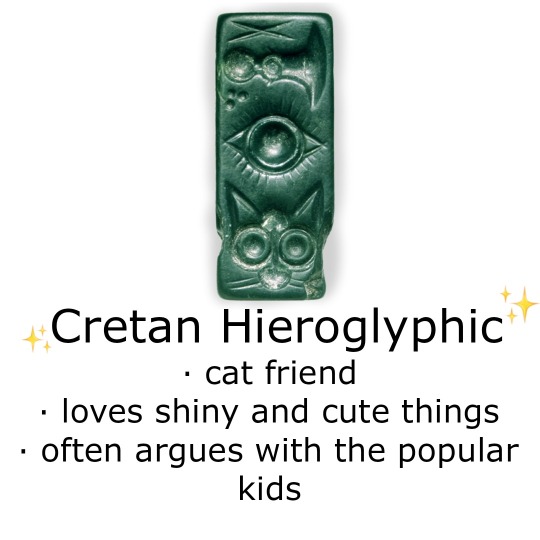
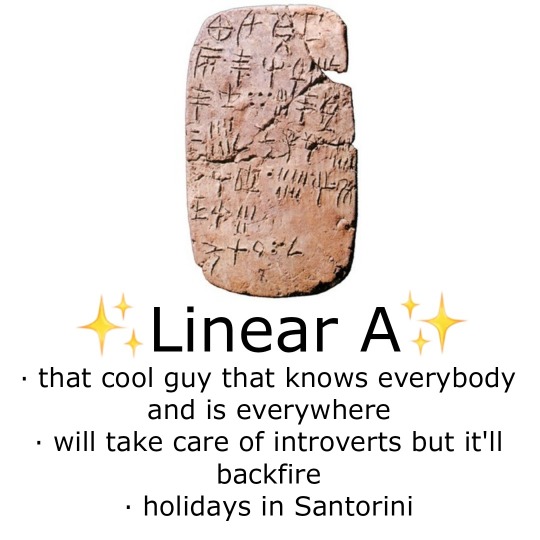


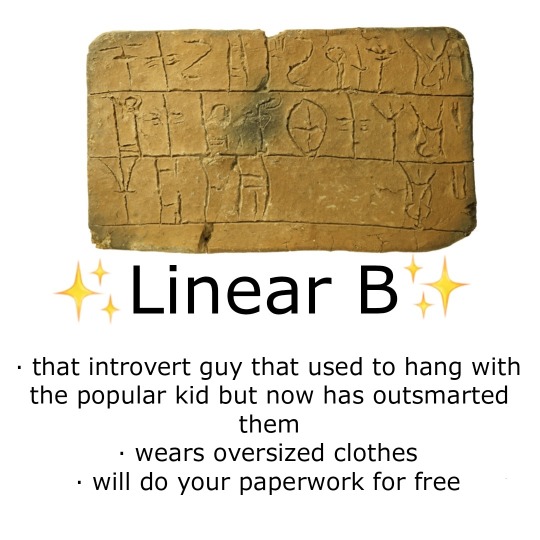

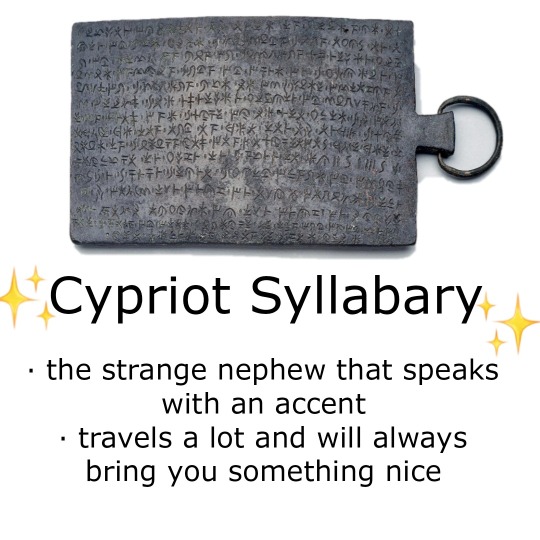
✨ tag yourself ✨ but with Aegean Scripts! Mainly Bronze Age, with a sprinkle of Iron Age (Cypriot Syllabary).
#tagamemnon#ancient greece#crete#minoan#scripture#history#classics#bronze age#cretan hieroglyphic#linear a#phaistos disc#linear b#cyprominoan#cypriot Syllabary#arkalochori axe#archaeology#tag yourself
3K notes
·
View notes
Text
Athens, Greece - The Acropolis
“Our country is deserving of praise, not only from us but from all men, on many grounds, but first and foremost because she is god-beloved. The strife of the god who contended over her and their judgment testify to the truth of our statement.” - Plato
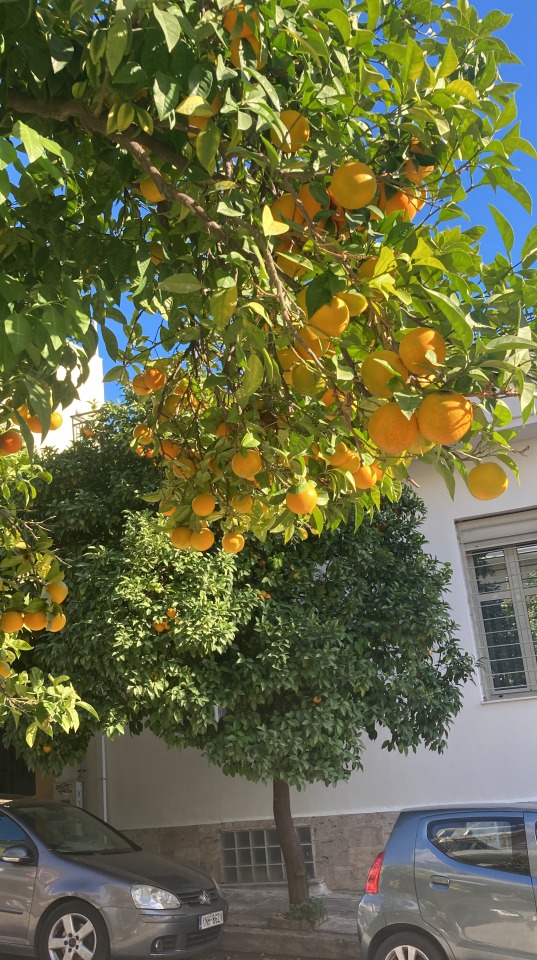
View On WordPress
#Acropolis#Adventure Seekers#Athena#Athens#Blogger#Couples Travels#Goddess Athena#Greece History#History of athens#International travel#Staying in Athens#Staying in Greece#Travel Blog#Travelers#Traveling Vlog#Visiting Athens#Visiting Greece
0 notes
Photo


Moonrise over The Temple of Poseidon, Greece by Thanassis Economou
20K notes
·
View notes
Text

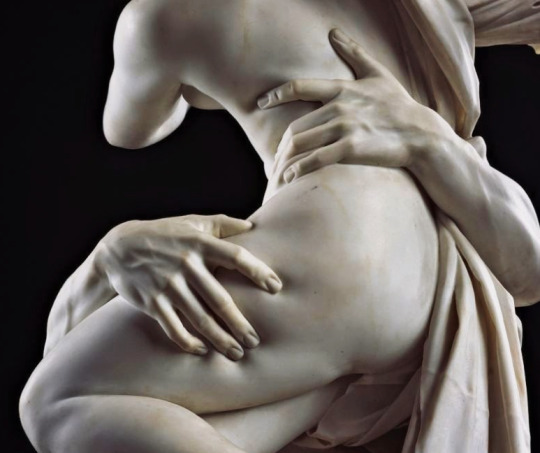

The abduction of Proserpina, Gian Lorenzo Bernini, 1621-22
#art history#art#italian art#baroque#aesthethic#marble#sculpture#greek mythology#roman mythology#proserpina#persephone#hades#gian lorenzo bernini#bernini#galleria borghese#ancient greece#pluton#17th century
2K notes
·
View notes
Text
"Women only started working very recently so a woman's place is the house-" shut up and feast your eyes at old photos of women from around the world doing physical labor only for them to return home and solely care for 5-10 children and the elderly parents of their husband.
Greek women represent:





These photos show Greek women doing the type of physical labor they would perform more often than not. At the luckiest working conditions for rural women (aka most of the country) they would start working the fields as children and when they got older they would work the same fields with their own babies on their backs.
On the way home from the fields, sometimes the women would carry the wood and the mule would carry the man so he could rest.
Of course, we can talk about the manual labor that is rubbing cloth and metal for hours on end, chopping and carrying wood to light a fire for a large cauldron your size, and stirring it for hours.
But we can also talk about how it wasn't for them to break and carry rocks in baskets for the making of new roads. They would gather salt, olives, and grapes and carry them on large baskets filled to the brim. For salt they carried thirty kilos each trip, doing fifty trips each, stepping shoeless on the grains of salt.
Carrying water was also their job, often moving large barrels with all the water a house of 10 needed upon hills that horses and mules had trouble ascending.
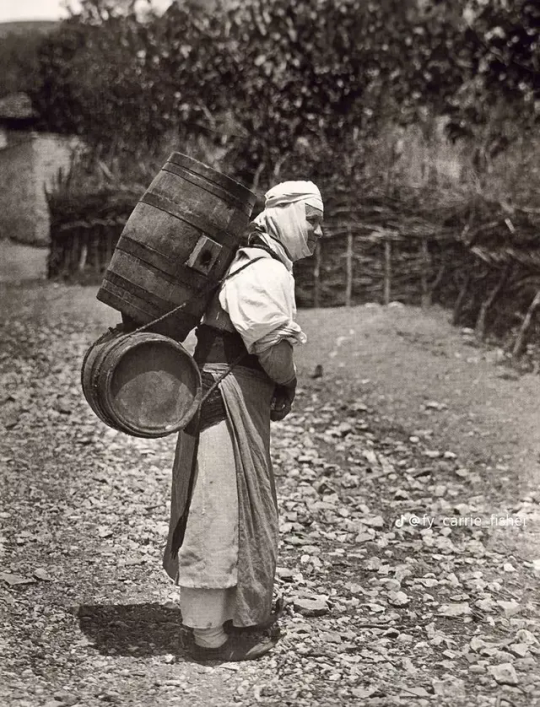
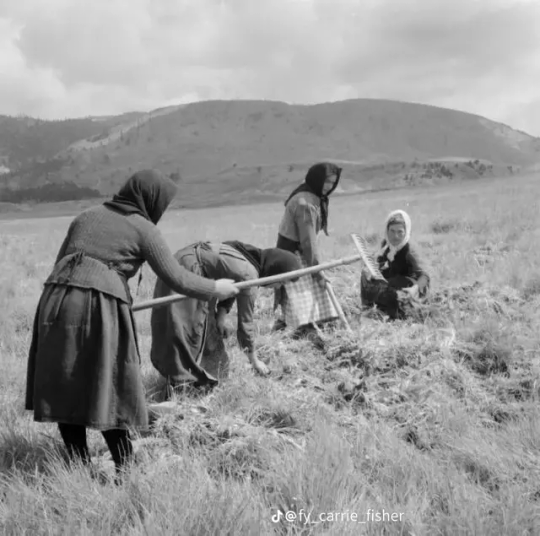

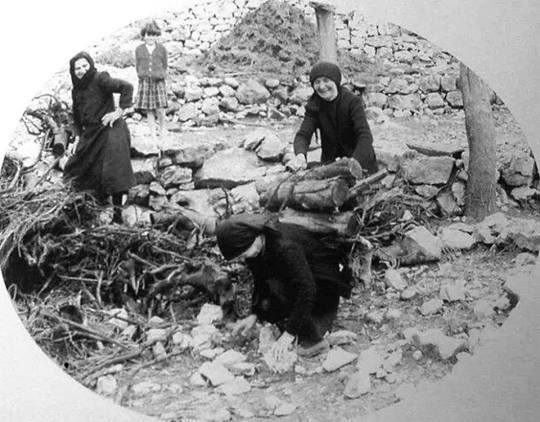



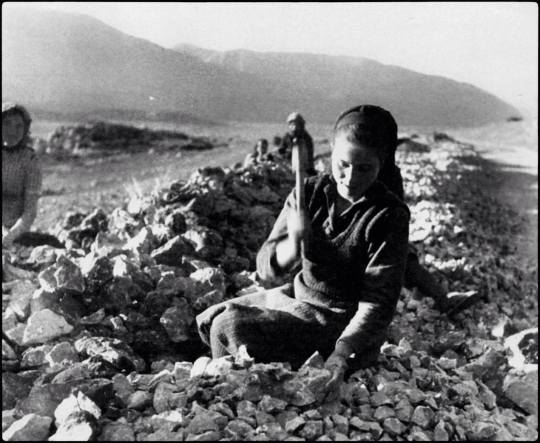
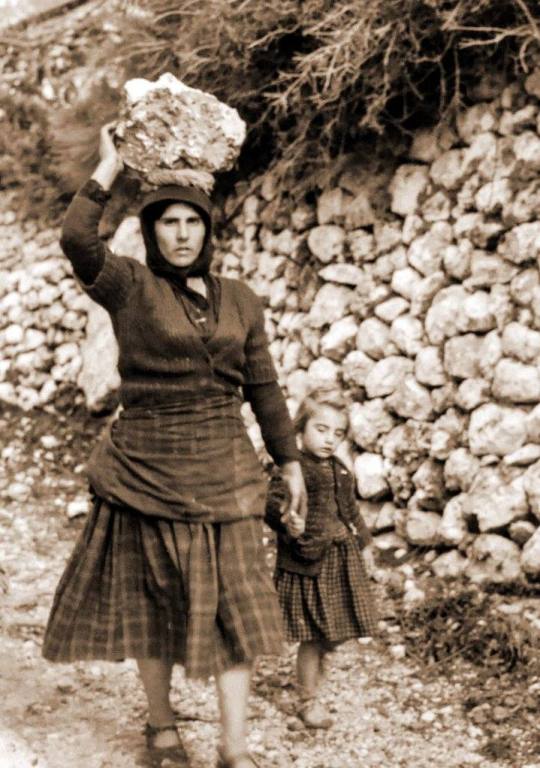
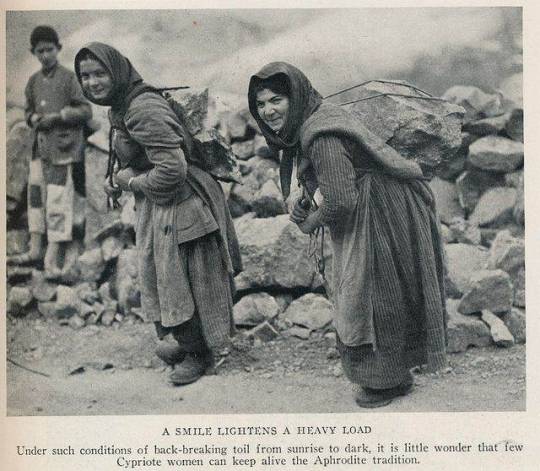


(more photos for salt mining and carrying here)
It's no hyperbole to say these women carried their incomes and households on their backs. "The good she-housekeeper is a slave and a lady" the old Greek saying goes. A "good woman" was a woman who could be strong and work at home and in the field, often described with the qualities of a mule. Men took their wives out in the fields so much that some who were a bit more educated had to make their husbands sign that they wouldn't ask them to work alongside them in the fields! (source in Greek)
Some of these photos are also from 1970. I'm missing a photo from Leukada showing women carrying baskets of the stones they broke, and I'll add it here when I find it.
Basically, women were out of the house forever. A woman who got to stay home and never perform any labor had some type of privilege (wealth, status etc). Same as the many privileged men around the world who didn't perform any labor at all.
===================================
If my posts have helped you in any way consider buying me a ko-fi 💖
#greek women#greece#greek history#vintage#vintage photo#manual labor#working class#greek people#working class history
2K notes
·
View notes